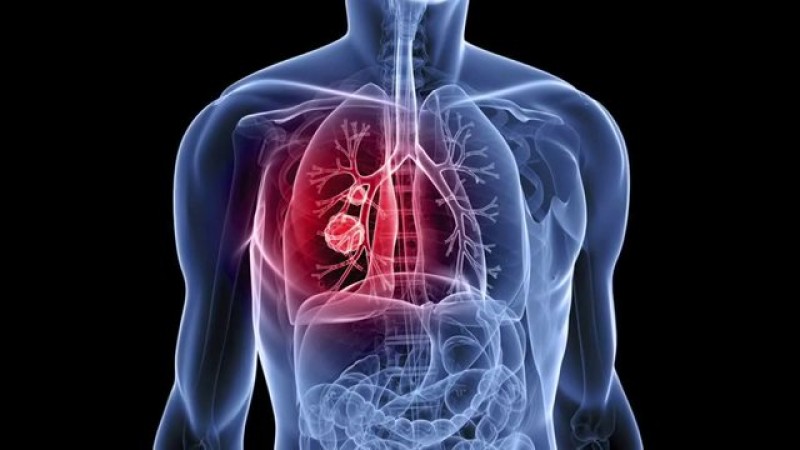
Lung cancer is a serious and often life-threatening disease that affects millions of people worldwide. In this comprehensive guide, we will delve into the various aspects of lung cancer, including its causes, risk factors, symptoms, diagnosis, treatment options, and prevention strategies. By the end of this article, you will have a better understanding of lung cancer and how to protect yourself and your loved ones from this devastating condition.
Understanding Lung Cancer
What Is Lung Cancer?
Lung cancer is a type of cancer that originates in the lungs. It occurs when abnormal cells in the lung tissue begin to grow uncontrollably, forming a mass known as a tumor. These tumors can interfere with the normal functioning of the lungs and may eventually spread to other parts of the body.
Types of Lung Cancer
There are two main types of lung cancer: non-small cell lung cancer (NSCLC) and small cell lung cancer (SCLC). NSCLC is the most common type and typically grows and spreads more slowly than SCLC.
How Does Lung Cancer Develop?
Lung cancer develops over time, usually as a result of repeated exposure to carcinogens. The primary cause of lung cancer is smoking, which introduces harmful substances into the lungs and triggers genetic mutations in lung cells.
Causes and Risk Factors
Smoking and Tobacco Use
Tobacco smoke contains numerous chemicals that can damage lung cells and lead to cancer. Smokers are at a significantly higher risk of developing lung cancer compared to non-smokers.
Secondhand Smoke Exposure
Even if you're not a smoker, exposure to secondhand smoke can increase your risk of lung cancer. Inhaling smoke from others' cigarettes, cigars, or pipes exposes your lungs to carcinogens.
Environmental Factors
Exposure to environmental pollutants such as asbestos, radon, and air pollution can contribute to the development of lung cancer, especially in individuals with prolonged or high levels of exposure.
Genetic Predisposition
While smoking is a major contributor, some individuals may have a genetic predisposition to lung cancer. Family history and inherited genetic mutations can play a role in the development of the disease.
Signs and Symptoms
Persistent Cough and Changes in Cough
A persistent cough that lasts for weeks, as well as changes in an individual's chronic cough, could be early signs of lung cancer. Pay attention to coughing up blood or rust-colored phlegm.
Shortness of Breath
Lung cancer can obstruct airways and make breathing difficult. If you experience unexplained shortness of breath, it's essential to consult a healthcare professional.
Chest Pain
Persistent chest pain, especially when coughing or laughing, can indicate lung cancer. The pain may extend to the shoulder or down the arm.
Unexplained Weight Loss
Sudden and unexplained weight loss could be a symptom of various medical conditions, including lung cancer. Cancer cells can consume energy and lead to weight loss.
Fatigue and Weakness
Lung cancer can cause fatigue and weakness due to the body's immune response and energy expenditure to fight the disease.
Diagnosis and Staging
Imaging Tests (X-rays, CT Scans, MRI)
Imaging tests allow doctors to visualize the lungs and identify any abnormalities or tumors. X-rays, CT scans, and MRIs are commonly used for lung cancer diagnosis.
Biopsy Procedures
A biopsy involves taking a sample of lung tissue for examination under a microscope. This procedure helps confirm the presence of cancer and determine its type.
Stages of Lung Cancer
Staging helps determine the extent of cancer spread. The stages range from 0 to IV, with 0 indicating cancer that is confined to the lungs and IV indicating cancer that has spread to distant parts of the body.
Treatment Approaches
Surgery
Surgery involves removing the tumor and nearby affected tissues. It's an effective treatment for early-stage lung cancer.
Chemotherapy
Chemotherapy uses drugs to kill cancer cells or stop their growth. It's often used in combination with other treatments for lung cancer.
Radiation Therapy
Radiation therapy delivers high doses of radiation to targeted areas, damaging cancer cells' DNA and preventing them from growing and dividing.
Targeted Therapies
Targeted therapies are drugs that specifically target genetic mutations present in cancer cells, disrupting their growth and survival.
Immunotherapy
Immunotherapy boosts the body's immune system to recognize and attack cancer cells. It's a promising treatment option for some lung cancers.
Lifestyle Changes and Prevention
Smoking Cessation
Quitting smoking is the most effective way to reduce the risk of lung cancer. The lungs can gradually heal after quitting, reducing the risk over time.
Healthy Diet and Exercise
A balanced diet and regular exercise can enhance overall health and support the immune system in combating cancer.
Avoiding Environmental Carcinogens
Minimize exposure to environmental toxins and carcinogens like asbestos and radon to lower the risk of lung cancer.
Coping with Lung Cancer
Emotional Support
A lung cancer diagnosis can be emotionally challenging. Seeking support from friends, family, or mental health professionals can help cope with the emotional impact.
Support Groups
Joining a lung cancer support group allows individuals to connect with others facing similar challenges and share experiences.
Palliative Care
Palliative care focuses on improving the quality of life for individuals with lung cancer, managing symptoms, and providing comfort.
Lung cancer is a complex disease that requires a comprehensive understanding of its causes, symptoms, diagnosis, and treatment options. By being aware of the risk factors and making informed lifestyle choices, you can take proactive steps to reduce your chances of developing lung cancer. If you or a loved one are facing a lung cancer diagnosis, remember that medical advancements and supportive care options are available to improve quality of life and provide hope for the future.
In What Ways Does Apple Cider Lower Blood Pressure?
Kombucha's Potential: Blood Sugar Benefits for Type-2 Diabetes
PCOS Management: Diet and Lifestyle Habits to Regulate Hormones